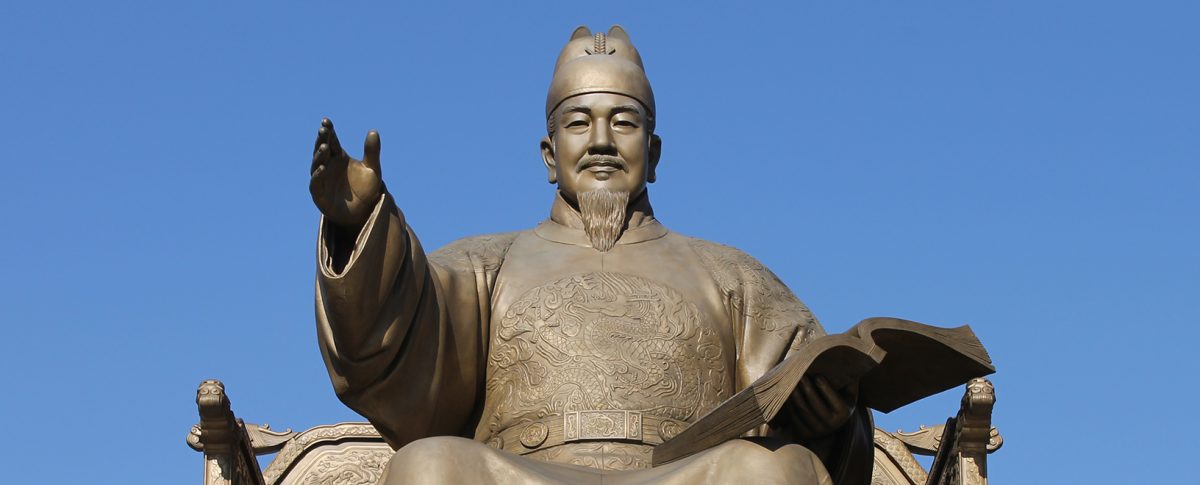If you’re fortunate to be the owner of a copy of Choi Hong-hi’s condensed or full Encyclopaedia of Taekwondo, and you’ve wandered through some of the pages at the back of the book concerning belts and ranks and titles, you might have seen a section describing the Korean titles given to black belts of various degrees.
In this section there are some very familiar words such as sabeom (written sabum in the book), which means ‘instructor’. The hangeul for sabeom is 사범, and you can look this word up in any reasonably comprehensive Korean-English dictionary. The word is also listed on many websites about Taekwondo as meaning ‘instructor’, and is used in lots of Taekwondo schools every week around the world.
However, also in this section of Choi’s book, you’ll also see words such as sahyun and sasung. Choi describes these words as being used to refer to high-ranking Taekwondo practitioners; however, if you try to look these words up in a Korean dictionary, they are nowhere to be found.
I’ve done this many times over the last few years to try to figure out what the hangeul and hanja for these words are, but have never found anything in any dictionary to suggest that they even are Korean words. Part of the difficulty in doing this is guessing at what the hangeul might be. In his various books, Choi uses his own system of romanising Korean text that is largely based on the American pronunciation of English letters. Knowing this I would guess that the hangeul for sahyun would actually be 사현 and the hangeul for sasung would be 사성; however, putting these words into good online Korean dictionaries (such as dic.naver.com) reveals nothing.
I concluded that these words were simply too obscure to be included in a normal Korean dictionary. I reached a dead-end. Until that was I discovered this page http://www.masterhoward.com/news/342-explanation-of-itf-tkd-titles.html by a Dublin Taekwondo instructor called Robert Howard, which finally gave me the answers I was looking for.
The reason these terms do not appear in standard Korean dictionaries is because they are new terms invented by Choi. This perhaps shouldn’t be surprising – Choi studied calligraphy from a young age, and seemed to like inventing new words (he came up with the name ‘Taekwondo’). I think this is even evident in the names he chose for the Changheon-yu forms, which I think are far more interesting than those of the Kukki-won forms.
The information on the page linked above reveals that sahyun is actually 사현 師賢 sahyeon. 사 師 sa means ‘teacher’, ‘master’, or ‘expert’, and 현 賢 hyeon means ‘a worthy or virtuous person’ or ‘moral’, thus sahyeon means ‘moral teacher’ or ‘wise teacher’. The syllable 현 also appears in words such as 현자 賢者 hyeonja and 현인 賢人 hyeonin, both of which mean ‘wise man’ or ‘sage’.
Similarly, sasung is actually 사성 師聖 saseong. 성 聖 seong means ‘sage’, and thus saseong means ‘sage master’ or ‘sage teacher’ – a title so honorific it could pretty much only be used for Choi himself. The syllable 성 聖 seong also appears in the word 성현 聖賢 seonghyeon, which means ‘sage’.
사현 師賢 sahyeon; moral teacher, wise teacher
사성 師聖 saseong; sage-master
These two words reflect the idea that Taekwondo is not just a method of combat – it is also a moral culture. They also show that high-ranking Taekwondo practitioners should not just be skilled fighters, but should be moral teachers and leaders.
These two words also, to an extraordinary degree, show the presence of Confucianism in Taekwondo. Korea was, for a very long time, a model Confucian society, and Confucian ideals still permeate modern Korean culture. One of the central ideas in Confucianism is that of the sage-king – the idea that the leader of a nation (and leaders in general) should aspire to be like the great sage-kings of antiquity – benevolent rulers who embodied Confucian ideals. The fact that Choi has chosen words here that seem to specifically refer to sagehood shows the influence of Confucianism on Taekwondo.
These two words will be added to the next edition of Taekwondo Terminology (whenever that comes out).
